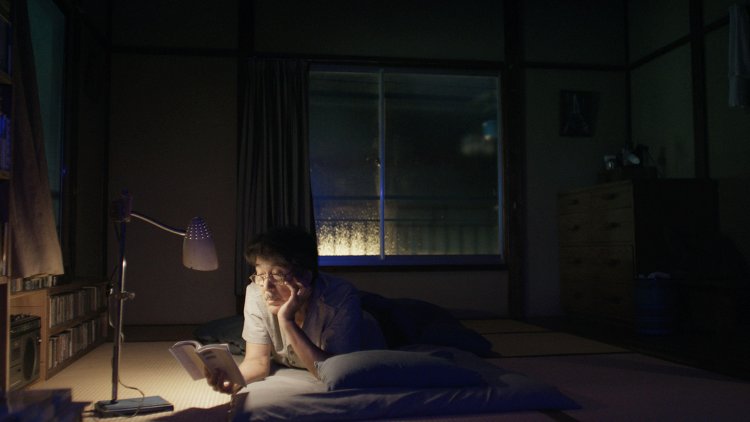The Ideal Mental-Reset Movie
Wim Wenders’s Perfect Days demands your full attention.

This is an edition of The Atlantic Daily, a newsletter that guides you through the biggest stories of the day, helps you discover new ideas, and recommends the best in culture. Sign up for it here.
Time is weird right now. During the “dead week” between Christmas and New Year’s, minutes, hours, and days may feel as though they’re either speeding up or slowing down, leaving you feeling refreshed and anchored or, alternately, anxious and adrift. If you’re looking for a mental reset, I recommend watching Perfect Days.
The film, which premiered last year and was released across the U.S. in February, follows the rhythmic routines of a man who cleans public toilets in Tokyo. Although that premise might sound limiting, trust me when I say that Perfect Days is one of the most enthralling movies I’ve seen this year—one that made me pause and reflect on how I spend the in-between moments of my life.
Wim Wenders, the German filmmaker behind the similarly meditative Paris, Texas, co-wrote and directed Perfect Days. Its star, Kōji Yakusho, won Best Actor at the Cannes Film Festival for his portrayal of Hirayama, the meek and semi-mysterious custodian at the story’s center. Hirayama leads something of a monastic existence. He sleeps on a thin mattress on the floor of his modest apartment, where, each day, he rises around dawn, waters his plants, pauses to consider the sky, then hops in his van to drive to his first toilet. Hirayama is more than an introvert; he hardly ever speaks. Off the clock, though, he’s a Renaissance man—a voracious reader, a nature photographer, a music fiend. His cassette-tape collection comprises the movie’s killer soundtrack: Otis Redding, Patti Smith, the Velvet Underground, the Rolling Stones, the Kinks, and Nina Simone are among the artists that blare through his van’s speakers as he cruises the city.
What’s so remarkable about this film is that it demands your full attention in a way that many modern movies do not. If you doomscroll, even for a minute, you’ll miss an ocean of tiny details. Many scenes unfold in soft, natural light, and dozens of subtle sounds crackle and pop: mustache-trimming, toothbrushing, keys jingling. Although the film is set in the present day, Hirayama doesn’t use a smartphone or, it would seem, have any relationship with the internet. Thus, unlike the rest of us, his attention span is unfractured. Whenever someone interrupts his cleaning regimen to use the bathroom, he kindly steps outside and, rather than mindlessly thumb through his phone, looks at the flickering shadows. When he eats his lunch in a park, he watches the wind pass through the leaves of the trees. At night, he reads before bed, then dreams about his day. His life may appear lonely, but it also looks far more interesting than whatever millions of others are performatively doing on Instagram.
Rest assured, actual plot and tension eventually work their way into the movie. (We gradually learn that Hirayama’s life is far from just zen, and that there are people who do want to engage with him.) However, at its core, Perfect Days remains a refreshingly small movie about practically nothing, one that raises some very big questions: How are we to find meaning in everyday life? How do we square fear of the unknown with our knowledge that everything will change? For that matter, how much are we supposed to worry about the above truths versus simply waking up each day and living? Some of the answers, or at least some of the clues, seem to be hiding in the lyrics of Hirayama’s song choices.
This week is an ideal time to take stock of what you really need for contentment. Sometimes that requires a pause, a step back, a huge breath. Other times you can find the clarity you’re seeking in a book, song, or movie. Perfect Days is a vehicle for all of the above. It’s also just a fantastic way to spend two hours. “Next time is next time,” Hirayama tells a visiting family member when they’re out for a bike ride. “Now is now.”
Related:
Here are three new stories from The Atlantic:
- A diet writer’s regrets
- The rise and fall of an internet princess
- How radical nationalists infiltrated Russia’s police and politics
Dispatches
-
Atlantic Intelligence: Damon Beres rounds up the top 10 AI stories that defined 2024.
Explore all of our newsletters here.
Evening Read
The People Who Quit Dating
By Faith Hill
Karen Lewis, a therapist in Washington, D.C., talks with a lot of frustrated single people—and she likes to propose that they try a thought exercise.
Imagine you look into a crystal ball. You see that you’ll find your dream partner in, say, 10 years—but not before then. What would you do with that intervening time, freed of the onus to look for love?
I’d finally be able to relax, she often hears. I’d do all the things I’ve been waiting to do. One woman had always wanted a patterned dish set—the kind she’d put on her wedding registry, if that day ever came. So Lewis asked her, Why not just get it now? After their conversation, the woman told her friends and family: I want those dishes for my next birthday, damn it.
Culture Break
Read: Spend time with The Atlantic’s list of Great American Novels.
Listen: These six songs sound like middle school.
When you buy a book using a link in this newsletter, we receive a commission. Thank you for supporting The Atlantic.
What's Your Reaction?




















